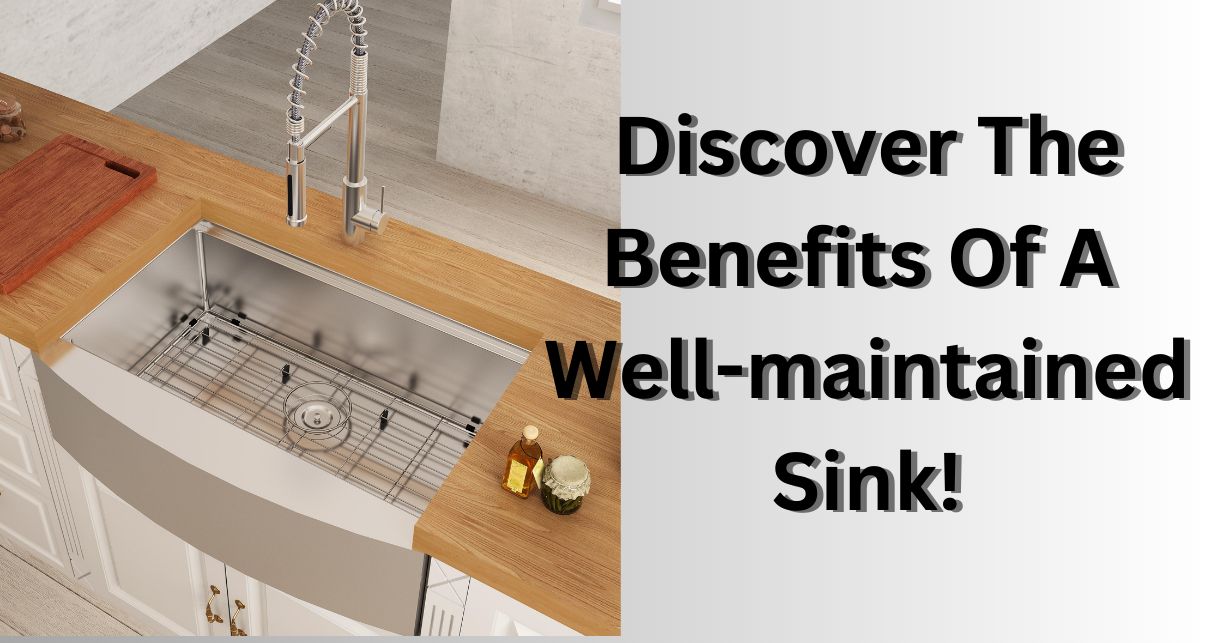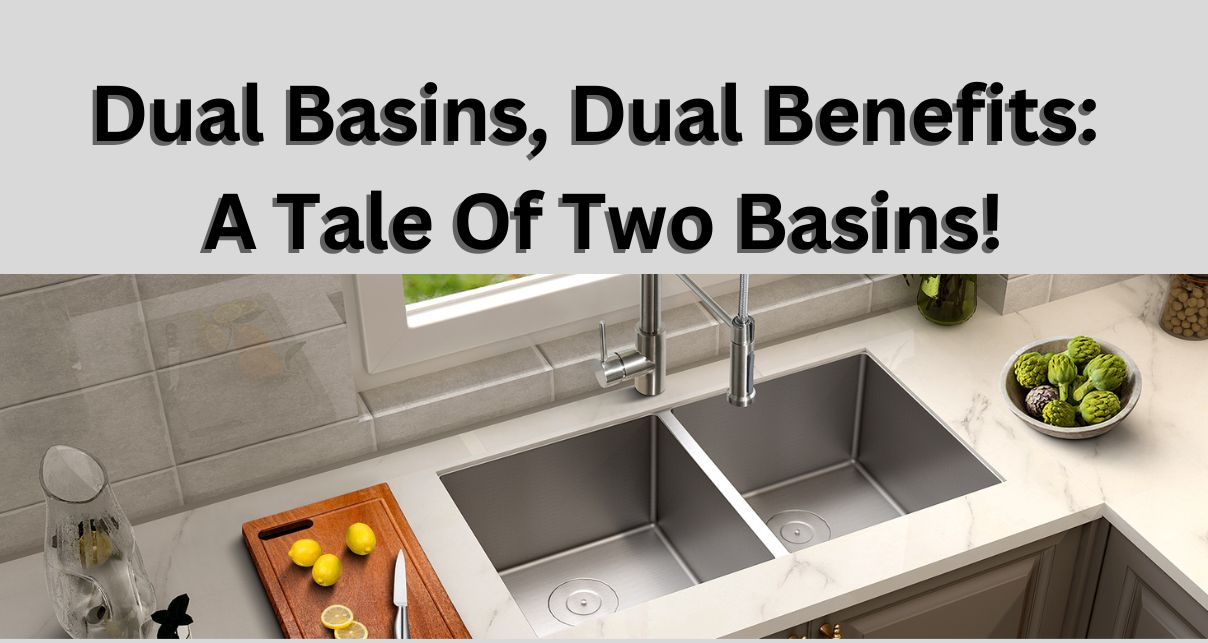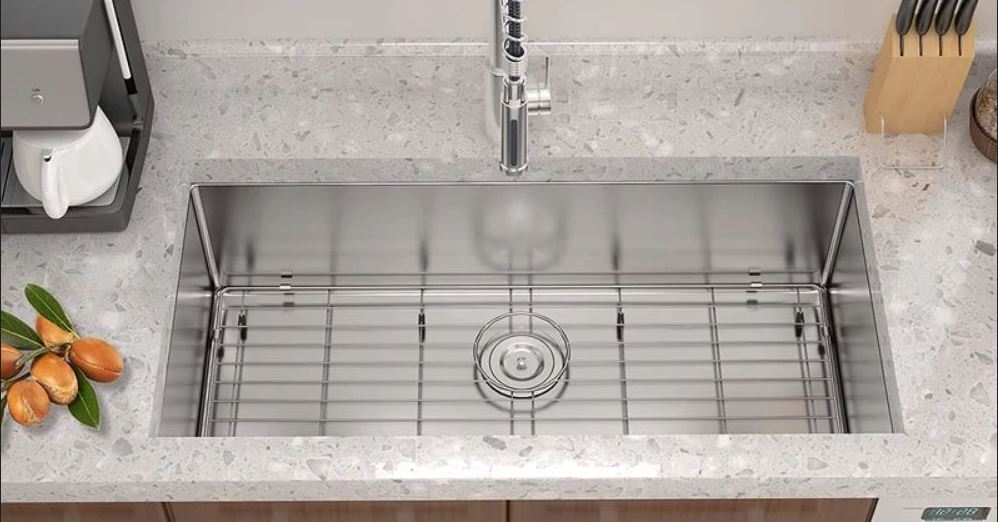Kitchen Sinks Benefits and Maintenance
A kitchen sink is an essential fixture in any home. It is used daily for washing dishes, preparing food, and cleaning. Choosing the right sink for your kitchen can make a big difference in terms of functionality and design.Benefits of Kitchen Sinks
Durability:
Kitchen sinks are made of durable materials such as stainless steel, porcelain, and granite, which can withstand the wear and tear of everyday use.
Easy to Clean:
Sinks are easy to clean, making it easy to maintain hygiene in your kitchen. Regular cleaning with mild detergents and disinfectants can help to prevent the buildup of bacteria and other harmful microorganisms.
Versatility:
Kitchen sinks come in various sizes, shapes, and designs, allowing you to choose a sink that fits your needs and preferences. You can also choose from different types of faucets and accessories to enhance the functionality of your sink.
Aesthetic Appeal:
Kitchen sinks can add aesthetic appeal to your kitchen, creating a focal point that enhances the overall design of your kitchen.
Space-saving:
Kitchen sinks can be designed to save space in your kitchen, allowing you to maximize your countertop and storage space.
Low Maintenance:
Kitchen sinks are low maintenance and can last for years with proper care and maintenance.
Cost-effective:
Kitchen sinks are a cost-effective investment that can increase the value of your property and improve the functionality of your kitchen.
Increase Property Value:
A well-designed and maintained kitchen sink can increase the value of your property, making it an excellent investment for homeowners.
Accessibility:
Kitchen sinks can be designed to meet the needs of individuals with disabilities or limited mobility, making them an excellent choice for accessible kitchens.

Maintenance Tips:
Cleaning Solutions:Use mild detergents and disinfectants to clean your sink regularly. Avoid using abrasive cleaners that can scratch or damage the surface of your sink.
Scrubbing:
Use a soft sponge or cloth to scrub your sink, and avoid using abrasive materials that can damage the surface.
Avoiding Stains:
Avoid leaving food or other substances in your sink for extended periods as they can cause stains. Clean spills immediately to prevent staining.
Repair:
Repair any leaks or damages promptly to prevent further damage to your sink.
Troubleshooting:
If you experience any issues with your sink, troubleshoot the problem and identify the cause. This can help you to determine the appropriate solution for the issue.
Replacing Parts:
If any parts of your sink are damaged, consider replacing them with new parts to maintain the functionality of your sink.
Unclogging:
If your sink is clogged, use a plunger or a drain snake to clear the blockage.
Disposal of Waste:
Dispose of food waste and other debris appropriately to prevent clogs and damage to your sink.
Practice Good Hygiene:
Maintain good hygiene practices by washing your hands and cleaning your sink regularly.
Use a Drain Strainer:
Use a drain strainer to prevent food waste and debris from entering your sink's drain, reducing the risk of clogs and damage.
Frequently Asked Question:
What materials are kitchen sinks made of?
Kitchen sinks can be made of various materials such as stainless steel, cast iron, granite, copper, and ceramic. Each material has its own advantages and disadvantages.
How do I choose the right size of kitchen sink for my kitchen?
Consider the size of your kitchen countertop and cabinet, the number of bowls you need, and the type of installation you want (top-mount or undermount). It's also important to ensure the sink is deep enough to accommodate large pots and pans.
How do I clean my kitchen sink?
Clean your kitchen sink regularly with warm water and mild soap. Use a soft-bristled brush or sponge to remove any stubborn stains. Avoid using abrasive cleaners or steel wool, which can scratch the sink's surface.
How do I prevent my kitchen sink from clogging?
Use a sink strainer to prevent food scraps and other debris from clogging your drain. Avoid pouring grease or oil down the drain, as they can solidify and cause blockages. If your sink does get clogged, use a plunger or drain snake to clear the blockage.
Can I install a garbage disposal with my kitchen sink?
Yes, most kitchen sinks can be equipped with a garbage disposal. However, it's important to ensure your plumbing and electrical systems can handle the extra load. Tecasa kitchen sinks are a great investment for any homeowner looking for a durable, functional, and stylish sink for their kitchen. By following the maintenance tips outlined in this article, you can keep your Tecasa sink looking and performing like new for years to come. Remember to clean your sink regularly, protect it from scratches and dents, use a sink strainer, and avoid using harsh chemicals.



